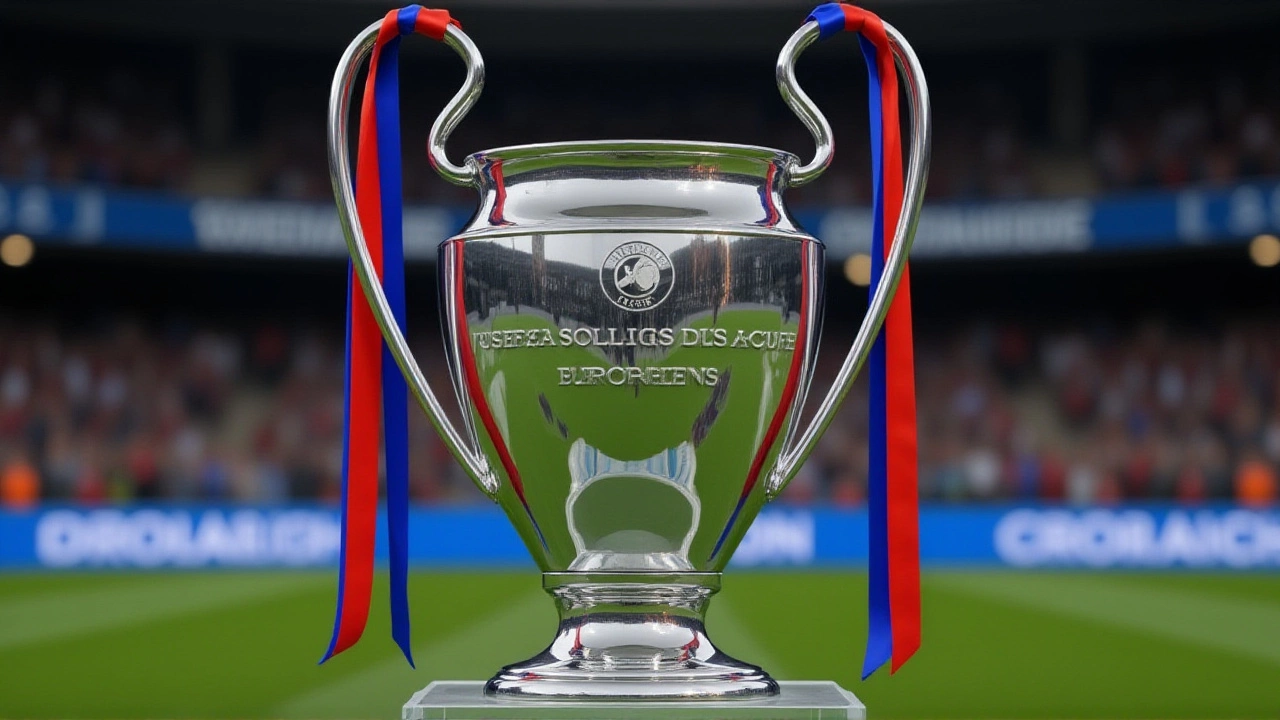The 2025/26 UEFA Champions League is already in motion, with the league phase kicking off on , and the final set for Puskás Aréna in Budapest on . This season isn’t just another edition—it’s the first under a radically reshaped format, expanding from 32 to 36 teams in the league phase. Fans in the United States and United Kingdom now face a new viewing landscape, with exclusive rights split between streaming giants and cable networks. The change isn’t just logistical; it’s emotional. For the first time, every team plays eight matches, not six. That means more drama, more upsets, and more chances for underdogs to make history.
The New Format: Why This Season Feels Different
Forget the old group stage. The 2025/26 UEFA Champions League now uses a Swiss-system league format, where every team faces eight opponents—four home, four away—selected randomly. The top eight qualify directly for the round of 16. Teams ranked 9th to 24th enter a two-legged playoff. And here’s the sting: teams finishing 25th to 36th are eliminated from all European competition. No Europa League lifeline. No consolation. It’s win or go home after eight games. UEFA confirmed this overhaul in its January 16, 2024 announcement (document ID: 0296-1d21e9bdf7e4-808a7511165c-1000), signaling a shift toward more revenue-generating matches and fewer predictable group outcomes. The result? A season where even mid-table clubs can find themselves in must-win scenarios by November.
Must-Watch Matchdays: November, December, and January
Three matchdays stand out as potential turning points. First, : Chelsea hosts Barcelona at Stamford Bridge at 3:00 PM ET. That’s not just a clash of legends—it’s a statement game for both teams rebuilding after disappointing campaigns. The same day, Manchester City welcomes Bayer Leverkusen at the Etihad Stadium, where City’s title defense hangs in the balance.
Then comes —the night Real Madrid meets Manchester City at the Santiago Bernabéu. This isn’t just a fixture; it’s a heavyweight bout between the two most dominant clubs in Europe over the last decade. Kickoff: 3:00 PM ET. And if you’re a fan of narrative, Liverpool vs Inter Milan at San Siro on could decide who advances directly to the knockout round.
On , Newcastle United takes on Paris Saint-Germain at St. James' Park. For Newcastle, it’s a chance to prove they belong among Europe’s elite. For PSG, it’s a test of whether they can shake off their reputation as underachievers.
Where to Watch: U.S. and UK Broadcast Breakdown
In the United States, Paramount+ holds exclusive English-language streaming rights for every match. But don’t expect to see everything there. Select games—like Pafos FC vs AS Monaco on —will also air on CBS Sports Golazo Network and Amazon Prime Video. Spanish-language fans can tune into TUDN or ViX. The fragmentation is frustrating, but it reflects how U.S. sports broadcasting has evolved: no single platform owns it all.
Across the Atlantic, TNT Sports dominates in the United Kingdom. The network has secured rights across nine channels: TNT Sports 1 through 9, plus TNT Sports Ultimate. On , FC Copenhagen vs Kairat Almaty airs on TNT Sports 8 at 17:45 GMT. The Pafos vs Monaco match goes to TNT Sports 4. No free-to-air options. No public service broadcast. If you want to watch, you pay.
Why This Matters Beyond the Pitch
This format shift isn’t just about more games—it’s about money, power, and control. UEFA estimates the new structure will generate over $2.3 billion in broadcast revenue over the cycle, with top clubs taking the lion’s share. Smaller clubs, like Bodø/Glimt from Norway or Qarabağ from Azerbaijan, now have a better shot at earning substantial payouts. But the trade-off? More pressure, less margin for error. One loss can end your European dream before Christmas.
For fans, it’s a double-edged sword. More matches mean more access—but also more scheduling chaos. And with broadcast rights splintered across platforms, many are left wondering: How do I watch without subscribing to five services? The answer? You don’t. You pick your favorite team, and you pay.
What’s Next? Changes, Delays, and the Final Countdown
UEFA has warned that broadcast times may shift at the last minute to accommodate television partners. That’s already happened with the December 10 match between Real Madrid and Manchester City, which was originally scheduled for 2:00 PM ET but moved to 3:00 PM ET to maximize U.S. viewership. Expect more adjustments as the season progresses. The final, set for Puskás Aréna, is already sold out—but the road there? It’s wide open.
Frequently Asked Questions
How does the new 36-team format change the chances for underdog clubs?
The expanded format gives smaller clubs like Bodø/Glimt or Qarabağ eight matches instead of six, increasing their chances of earning revenue and advancing. Teams ranked 9th to 24th still get a playoff shot, meaning clubs from Norway, Azerbaijan, or Cyprus can now reach the round of 16—something nearly impossible under the old group stage. But the pressure is higher: one bad result can knock you out entirely.
Why can’t I watch all Champions League games on one platform in the U.S.?
UEFA sold broadcast rights in bundles to maximize revenue. Paramount+ holds the primary English-language rights, but select matches were sublicensed to Amazon Prime Video and CBS Sports Golazo Network for broader reach. Spanish-language rights went to TUDN and ViX. This fragmentation reflects the U.S. market’s shift toward niche streaming, but it frustrates fans who want a single subscription for all matches.
What time do matches start in the UK versus the U.S.?
UK matches are listed in GMT or CET, while U.S. listings use Eastern Time (ET). During standard time, CET is six hours ahead of ET; during daylight saving, it’s five. For example, a 3:00 PM ET match is 8:00 PM CET. Always check local listings—broadcasters sometimes adjust kickoffs for prime-time slots.
Which teams are most at risk of being eliminated early in the new format?
Teams with weaker squads and limited financial resources, like Pafos FC or Kairat Almaty, face the steepest climb. They play eight matches against elite clubs and have no safety net. A single loss to a top-10 side could drop them below the playoff cutoff. Their survival depends on home-field advantage and defensive discipline.
Will the Champions League final ever return to the U.S.?
UEFA has signaled openness to hosting the final outside Europe, with potential venues including New York, Miami, or Los Angeles in the 2030s. But for now, the final remains in Europe. The 2026 final in Budapest is the 11th held in Hungary, reflecting UEFA’s preference for traditional venues with proven infrastructure and fan turnout.
How many matches will a top team like Manchester City play in total this season?
If Manchester City finishes in the top eight, they’ll play 8 league phase matches, 2 knockout round games, and potentially up to 6 more if they reach the final—totaling 16 matches. That’s more than a Premier League season. For players, it’s a grueling schedule. For fans, it’s nonstop football from July to May.






